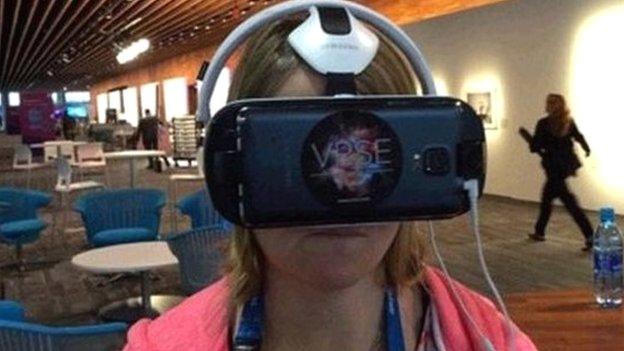Oculus and Xbox create virtual reality tie-up
- Published
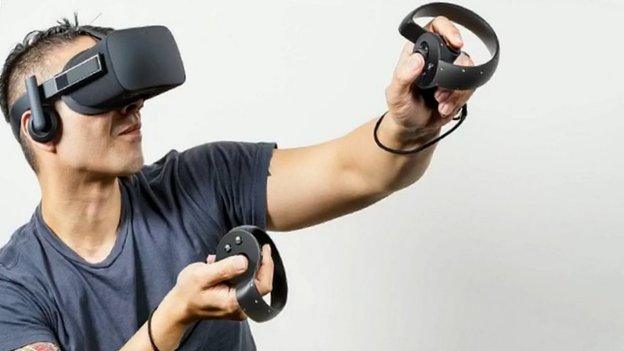
Oculus showed off the consumer version of its Rift headset and a prototype VR control system called Touch
Oculus VR has shown off the version of its virtual reality headset that will be sold to consumers, and revealed it will come with an Xbox One controller.
The Facebook-owned company also revealed it is working on its own handheld controller system called Oculus Touch.
The Rift headset will be released early next year. Until now, only a "developer" version had been sold.
It will compete with rival VR headsets such as Sony's Morpheus and HTC's Vive.
Richard Taylor takes a first look at Oculus's Rift headset
Google has made a more basic entry into the market with its Cardboard product, which uses a person's smartphone to create a VR effect.
The deal with Microsoft means Oculus owners will be able to stream Xbox One games to the headset and see them as if they are being viewed on a huge "home cinema" screen.
Microsoft's gaming boss Phil Spencer made a surprise appearance at the event to introduce the partnership.
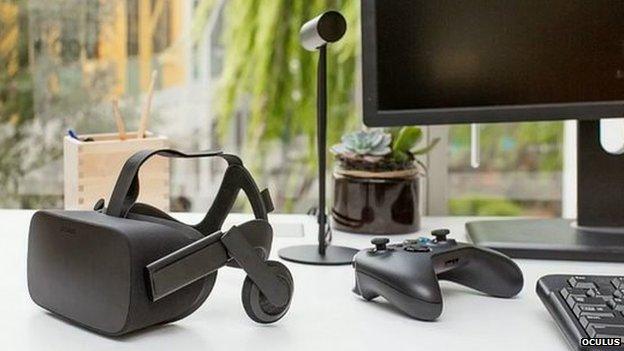
The Rift headset will be sold with a sensor fitted to a stand and an Xbox One gamepad
But he did not discuss whether the Xbox One would offer VR games of its own - allowing players to experience immersive 360-degree views - via the headset.
However, Mr Spencer hinted that more information would be shared at next week's E3 conference in Los Angeles.
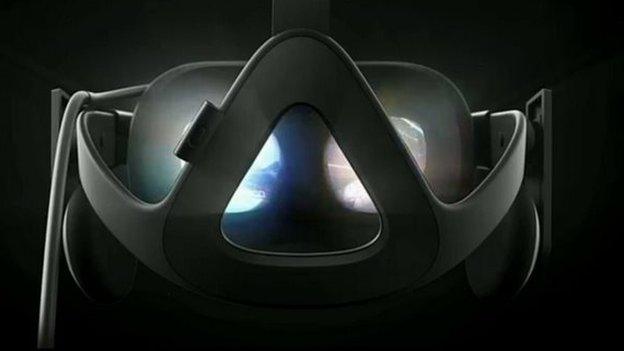
The firm said that sensors built into the helmet track the user's head movements with low latency
"The Microsoft deal with Oculus seems like a risk-free way to try and undermine Morpheus' advantage," commented Piers-Harding Rolls, a video games industry analyst at the IHS consultancy.
"But streaming XBox One games... is not going to sell Oculus.
"The video of the experience didn't look compelling."
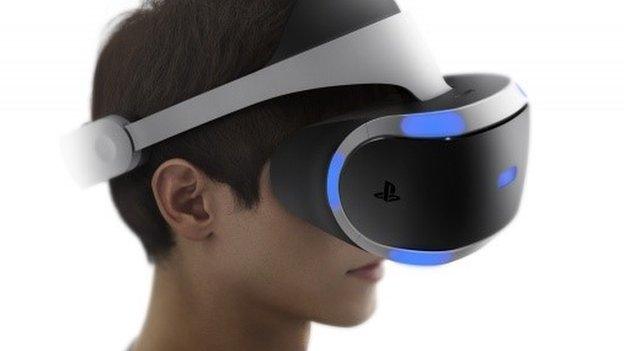
Sony's rival Morpheus headset runs games powered by its PlayStation 4 console
'Something huge'
Oculus founder Palmer Luckey said his firm had been looking at new ways for gamers to interact with virtual reality beyond using a console gamepad.
He showed off the prototype Oculus Touch system, which consists of two wireless handheld controllers fitted with buttons, joypads and sensors.
He said they were designed to make sense of the kinds of gestures people made naturally with their hands.
Ben Wood, an analyst at CCS Insight, said the launch put Oculus in the "driver's seat" in the VR market.
"With Facebook's resources it has a huge head-start over rivals and its already delivered two iterations of its developer platform," he told the BBC.
"Furthermore, it's the brand that is synonymous with virtual reality technology."
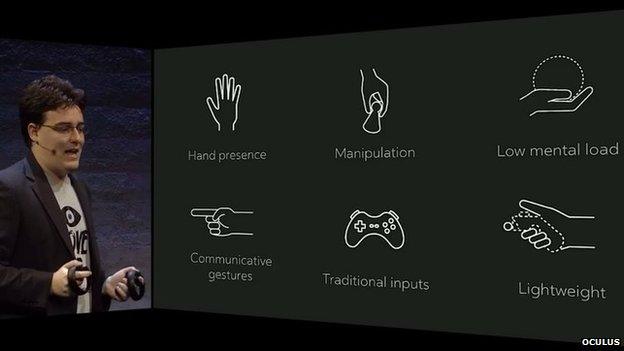
Mr Luckey said that the new controllers - Oculus Touch would offer gamers a new kind of experience

One video game teaser showed the user experiencing a first-person view in an ice hockey match
Crowdfunded origins
The Rift headset began its life as a crowdfunded Kickstarter project, raising $2.4m (£1.5m). It was later bought by Facebook for $2bn in 2014.
"We consider virtual reality has the potential to be one of the most disruptive technologies for a decade," said Mr Wood.
"You only have to look at the huge investments being made by companies like Facebook, Google, HTC, Sony and many others to realise we are on the cusp of something huge."
Jason Rubin, head of Oculus Studios, introduced some early titles designed for the Rift, including Eve Valkyrie, a first-person shooting game, and role-playing game Chronos.
Oculus' head of development strategy Anna Sweet also announced a $10m fund for independent developers to spur on the creation of games for the platform.
Attracting developers to the Rift will be critical to Oculus's success, said Brian Blau, an analyst at Gartner.
"They're all going to be competing hard for those developers to support their platforms - that's where you're going to see the real competition," he said.
"Games developers are going to have a lot of difficult choices to make."
- Published11 June 2015
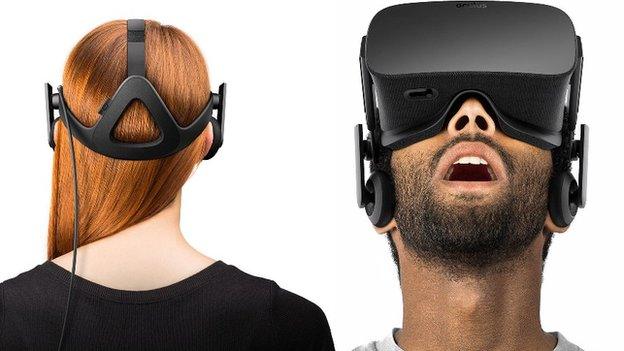
- Published6 May 2015
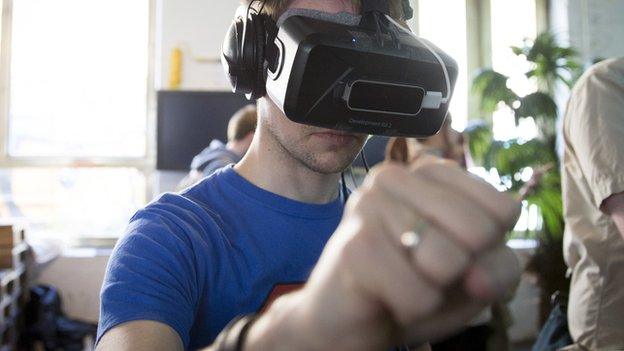
- Published23 April 2015
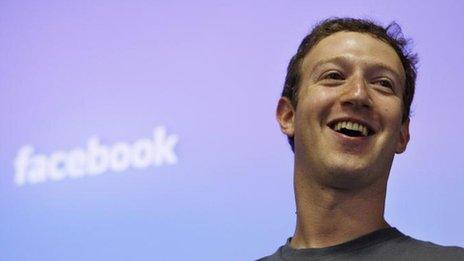
- Published1 April 2015
